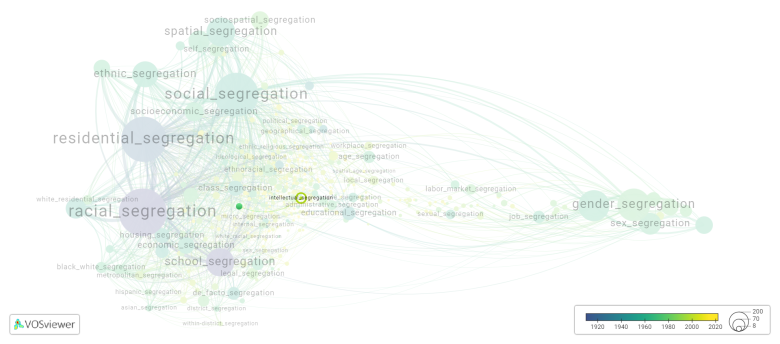Intellectual segregation
Date and country of first publication[1]
2007
United States
Definition
Intellectual segregation refers to the separation or isolation of individuals or groups of people based on their intellectual abilities or interests. It occurs when individuals are deliberately or inadvertently excluded from participating in certain social, academic, or professional environments due to their intellectual capacities, achievements, or interests. This segregation can manifest in various ways, such as tracking students into different academic programs based on their abilities, creating communities or societies exclusively for individuals with specific intellectual interests, or excluding people with differing intellectual abilities from certain educational or professional opportunities. Intellectual segregation can contribute to inequality, limited opportunities, and the suppression of diverse perspectives and ideas.
See also
Related segregation forms
Intellectual segregation is frequently discussed in the literature with the following segregation forms:
This visualization is based on the study The Multidisciplinary Landscape of Segregation Research.
For the complete network of interrelated segregation forms, please refer to:
References
Notes
- ↑ Date and country of first publication as informed by the Scopus database (December 2023).
Intellectual segregation appears in the following literature
Margonis F. (2007). John Dewey, W. E. B. du Bois, and Alain Locke: A case study in white ignorance and intellectual segregation. Race and Epistemologies of Ignorance, 173-195. State University of New York Press.https://doi.org/
Back L., Tate M. (2015). For a sociological reconstruction: W.E.B. Du Bois, stuart hall and segregated sociology. Sociological Research Online, 20(3), -. University of Surrey.https://doi.org/10.5153/sro.3773
Rabossi M. (2015). Academic Inbreeding in the Argentine University: A Systemic and Organizational Analysis. Palgrave Studies in Global Higher Education, 45-72. Palgrave Macmillan Ltd..https://doi.org/10.1057/9781137461254_3

